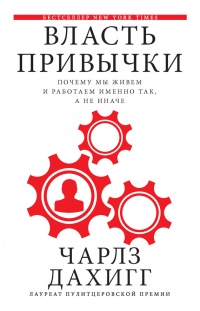Читать книгу "Секреты лаборатории питания. Наука похудения, мифы о силе воли и пользе диет - Трейси Манн"
Шрифт:
Интервал:
Закладка:
16. Inger Thune and Anne-Sofie Furberg, “Physical Activity and Cancer Risk: Dose-Response and Cancer, All Sites and Site-Specific”, Medicine and Science in Sports and Exercise 33, Suppl. (June 1, 2001): S530-S550, doi: 10.1097/00005768-200106001-00025.
17. Это происходит, даже если масса тела не уменьшается. Sean Carroll and Mike Dudfield, “What Is the Relationship between Exercise and Metabolic Abnormalities?”, Sports Medicine 34, no. 6 (2004): 371-418, doi: 10.2165/00007256-200434060-00004.
18. Kelly M. Naugle, Roger B. Fillingim, and Joseph L. Riley, “A Meta-Analytic Review of the Hypoalgesic Effects of Exercise”, Journal of Pain 13, no. 12 (December 2012): 1139-50, doi:10.1016/j.jpain.2012.09.006.
19. Liisa Byberg et al., “Total Mortality After Changes in Leisure Time Physical Activity in 50 Year Old Men: 35 Year Follow-up of Population Based Cohort”, BMJ (Clinical Research Ed.) 338, no. mar05_2 (January 5, 2009): b688, doi: 10.1136/bmj.b688.
20. Caudwell et al., “Exercise Alone Is Not Enough”.
21. Там же.
22. Один из девяти фактов об ожирении, представленных в работе: Casazza et al., "Myths, Presumptions, and Facts about Obesity’’.
23. Petri Wiklutul cl nl., "Metabolic Response to 6-Week Aerobic Exercise Training and Dieting in Previously Sedentary Overweight and Obese Pre-Menopmisnl Women: Л Randomized Trial”, Journal of Sport and Health Science (.June 2014), doi: 10.1016/j.jshs.2014.03.013.
24. Organisation lor Economic Co-operation and Development Better Life Index, 2014, Center lor Economic and Policy Research, http://www. cepr.net/index.php/piiblications/reports/no-vacation-nation-2013.
25. Rebecca Ray, Milla Stines, and John Schmitt, “No-Vacation Nation Revisited” (Washington, DC: Center for Economic and Policy Research, 2013).
26. Главные доказательства пагубного воздействия стресса на здоровье собраны п грамотно и хорошо написанной книге: Robert Sapolsky, "Why Zebras Don’t Get Ulcers”, 3rd.ed. (New York: Holt Paperbacks, 2004). J[m ознакомления с классическим научным обзором см.: McEwen and Seeman, “Protective and Damaging Effects of Mediators of Stress”.
27. Хороший тому пример — эксперименты с прыжками с парашютом. Подробнее см.: Manfred Schedlowski et al., “Changes of Natural Killer Cells during Acute Psychological Stress”, Journal of Clinical Immunology 13, no. 2 (March 1993): 119-26, doi:10.1007/BF00919268.
28. S. Cohen, D. Janicki-Deverts, and G. E. Miller, “Psychological Stress and Disease”, JAMA 298, no. 14 (2007): 1685-87, doi:10.1001/ jama.298.14.1685.
29. Sapolsky, “Why Zebras Don’t Get Ulcers”.
30. Там же.
31. Там же.
32. Sally S. Dickerson and Margaret E. Kemeny, “Acute Stressors and Cortisol Responses: A Theoretical Integration and Synthesis of Laboratory Research”, Psychological Bulletin 130, no. 3 (May 1, 2004): 355-91, doi: 10.1037/0033-2909.130.3.355; Gregory E. Miller, Edith Chen, and Eric S. Zhou, “If It Goes Up, Must It Come Down? Chronic Stress and the Hypothalamic-Pituitary-Adrenocortical Axis in Humans”, Psychological Bulletin 133, no. 1 (2007): 25-45.
33. P. Bjorntorp, “Do Stress Reactions Cause Abdominal Obesity and Comorbidities?”, Obesity Reviews 2, no. 2 (May 2001): 73-86, doi:10.1046/j.l467 789x. 2001.00027.x; E. S. Epel et al., “Stress and Body Shape: Stress-Induced Cortisol Secretion Is Consistently Greater among Women with Central Fat”, Psychosomatic Medicine 62, no. 5 (2000): 623-32.
34. Suzanne C. Segerstrom and Gregory E. Miller, “Psychological Stress and the Human Immune System: A Meta-Analytic Study of 30 Years of Inquiry”, Psychological Bulletin 130, no. 4 (July 1, 2004): 601-30, doi: 10.1037/0033-2909.130.4.601; Theodore F. Robles, Ronald Glaser, and Janice K. Kiecolt-Glaser, “Out of Balance. A New Look at Chronic Stress, Depression, and Immunity”, Current Directions in Psychological Science 14, no. 2 (April 2005): 111-15, doi:10.1111/ j.0963-7214.2005.00345.x; Schedlowski et al., “Changes of Natural Killer Cells during Acute Psychological Stress”.
35. Sheldon Cohen, David A. Tyrrell, and Andrew P. Smith, “Psychological Stress and Susceptibility to the Common Cold”, New England Journal of Medicine 325, no. 9 (1991): 606-12.
36. Jessica Walburn et al., “Psychological Stress and Wound Healing in Humans: A Systematic Review and Meta-Analysis”, Journal of Psychosomatic Research 67, no. 3 (September 2009): 253-71, doi: 10.1016/j.jpsychores.2009.04.002.
37. Elissa S. Epel et al., “Accelerated Telomere Shortening in Response to Life Stress”, Proceedings of the National Academy of Sciences of the United States of America 101, no. 49 (December 7, 2004): 17312-15, doi: 10.1073/pnas.0407162101.
38. Kimberly A. Brownley et al., “Sympathoadrenergic Mechanisms in Reduced Hemodynamic Stress Responses After Exercise”, Medicine and Science in Sports and Exercise 35, no. 6 (June 2003): 978-86, doi:10.1249/01.MSS.0000069335.12756.1B.
39. Peter Salmon, “Effects of Physical Exercise on Anxiety, Depression, and Sensitivity to Stress”, Clinical Psychology Review 21, no. 1 (February 2001): 33-61, doi:10.1016/S0272-7358(99)00032-X.
40. Cheryl J. Hansen, Larry C. Stevens, and J. Richard Coast, “Exercise Duration and Mood State: How Much Is Enough to Feel Better?”, Health Psychology 20, no. 4 (July 1, 2001): 267-75, doi: 10.1037/0278-6133.20.4.267.
41. J. C. Coulson, J. McKenna, and M. Field, “Exercising at Work and Self-Reported Work Performance”, International Journal of Workplace Health Management 1, no. 3 (September 26, 2008): 176-97, doi: 10.1108/17538350810926534; Robert R. Yeung, “The Acute Effects of Exercise on Mood State”, Journal of Psychosomatic Research 40, no. 2 (February 1996): 123-41, doi: 10.1016/0022-3999(95)00554-4.
42. Salmon, “Effects of Physical Exercise on Anxiety, Depression, and Sensitivity to Stress”.
43. Steven J. Petruzzello et al., “A Meta-Analysis on the Anxiety-Reducing Effects of Acute and Chronic Exercise”, Sports Medicine 11, no. 3 (March 1991): 143-82, doi: 10.2165/00007256-199111030-00002.
44. Peter J. Carek, Sarah E. Laibstain, and Stephen M. Carek, “Exercise for the Treatment of Depression and Anxiety”, International Journal of Psychiatry in Medicine 41, no. 1 (January 1, 2011): 15-28, doi:10.2190/ PM.41.1.c; Andreas Broocks et al., “Comparison of Aerobic Exercise, Clomipramine, and Placebo in the Treatment of Panic Disorder”, American Journal of Psychiatry 155, no. 5 (May 1, 1998): 603-9.
45. Carek, Laibstain, and Carek, “Exercise for the Treatment of Depression and Anxiety”; Gillian E. Mead et al., “Exercise for Depression”, Cochrane Database of Systematic Reviews no. 4 (January 2008): CD004366, doi: 10.1002/14651858.CD004366.pub3.
Внимание!
Сайт сохраняет куки вашего браузера. Вы сможете в любой момент сделать закладку и продолжить прочтение книги «Секреты лаборатории питания. Наука похудения, мифы о силе воли и пользе диет - Трейси Манн», после закрытия браузера.




